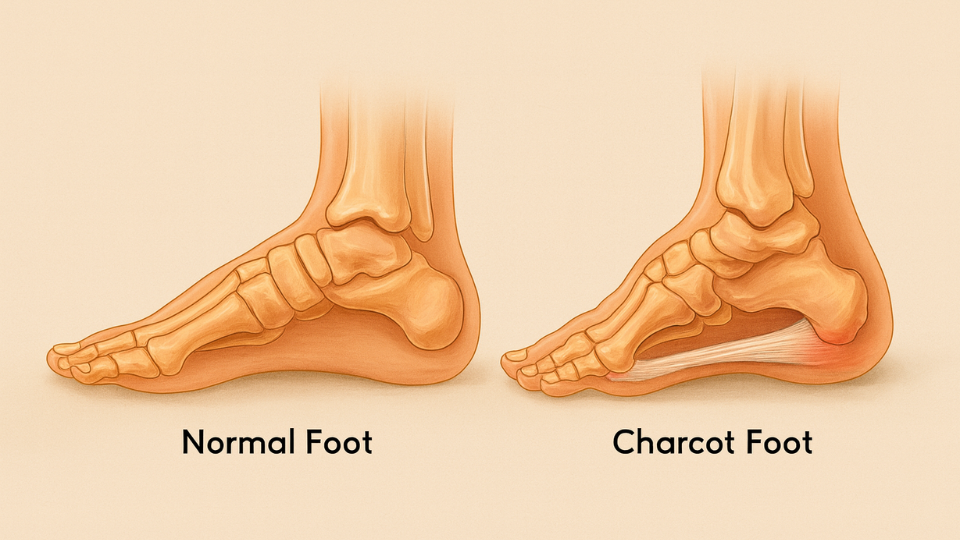Peripheral neuropathy can become a debilitating condition if not caught and managed in the early stages. Learn more about the condition and what symptoms to look for to avoid long-term foot and ankle complications.
An estimated 20 million Americans have some level of peripheral neuropathy, a progressive nerve-related condition that can ultimately interfere with mobility.
At Foot and Ankle Specialists in Memorial City, The Woodlands, and Huntsville, Texas, our experienced podiatrists offer in-office diagnostics to identify peripheral neuropathy in its earliest stages.
Our team also specializes in advanced treatments to alleviate pain and other symptoms the condition causes.
How peripheral neuropathy develops
Peripheral neuropathy describes damage in your peripheral nerves, the system of nerves outside of your brain and spinal cord. These nerves are responsible for providing temperature and pain sensations throughout your body. They also play a role in your muscle movements.
A common cause of peripheral neuropathy is uncontrolled diabetes. High blood sugar levels can eventually lead to the shrinking of the nerve endings in the nerves of your feet.
You might also be susceptible to nerve damage if your body isn’t able to properly absorb nutrients like vitamins and minerals from your diet. Additionally, damage to your peripheral nerves can occur with a foot injury from an auto accident or fall. Trauma can lead to entrapment of the nerves in your foot, between your toes, or in your spine.
Foot and Ankle Specialists offer comprehensive diagnostic technologies to confirm peripheral neuropathy and rule out other conditions. Our experienced podiatrists have extensive experience evaluating the severity of peripheral neuropathy and designing a treatment plan to relieve the worst of your symptoms.
Recognizing warning signs of peripheral neuropathy
Peripheral neuropathy causes symptoms that typically start as mild and occasional. Over time, your symptoms may become more intense and persistent. For some, peripheral neuropathy can lead to disability.
Here are five potential symptoms that peripheral neuropathy can cause:
1. Tingling in your lower limbs
Tingling sensations are often a symptom of peripheral neuropathy that occurs early on. You might feel recurrent episodes of pins and needles sensations that travel down through your legs and into your feet whether you’re resting or being physically active.
2. Burning pain sensations
Burning pain is a common side effect of peripheral neuropathy. As your condition worsens, pain may feel like a sharp or throbbing sensation that radiates throughout your legs and feet.
3. Numbness
As nerve damage persists, your feet and legs may become numb for a period of time or you may not be able to feel any sensation in your lower limbs.
4. Foot ulcers
The loss of sensations in your legs and feet can lead to ulcers, open wounds that are slow to heal. Ulcers are most common in people with diabetes due to the poor circulation the condition causes. Even minor injuries to your feet can go unnoticed and lead to infected ulcers that are difficult to treat.
5. Temperature changes in your feet and toes
Damage to the autonomic nerves in your peripheral nervous system can lead to temperature changes in your ankles, feet, and toes. You might also develop an intolerance to heat and find that you sweat excessively, even when you’re not active.
If you have any of these symptoms or have difficulties managing your diabetes, meet with our team to discuss your options for diagnostic testing and treatment. We customize a care plan using nonsurgical strategies to control your existing symptoms and prevent worsening nerve damage.
Call the Foot and Ankle Specialist office near you today or Request an appointment anytime to schedule a diagnostic evaluation of your peripheral neuropathy symptoms.





